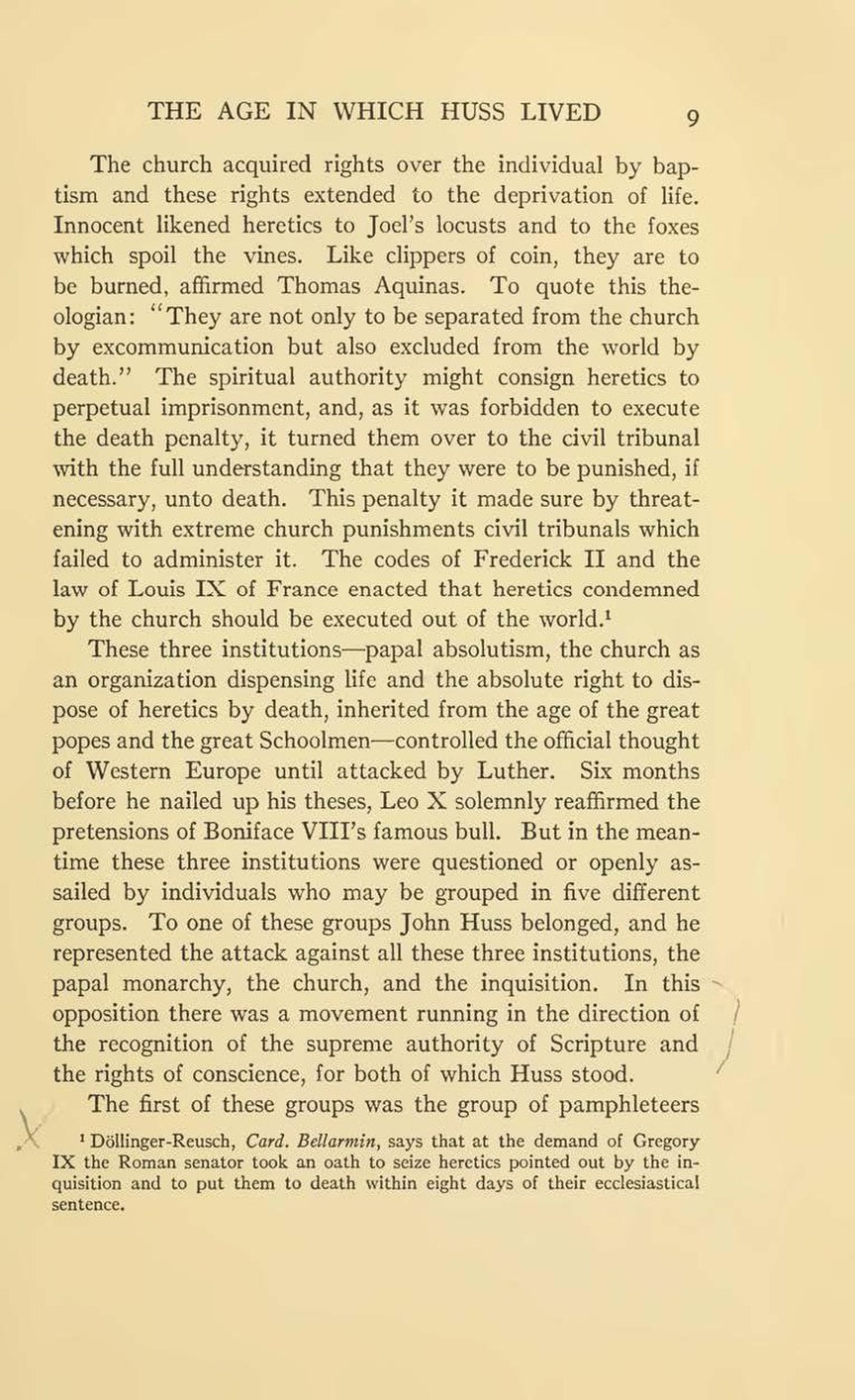The church acquired rights over the individual by baptism and these rights extended to the deprivation of life. Innocent likened heretics to Joel’s locusts and to the foxes which spoil the vines. Like clippers of coin, they are to be burned, affirmed Thomas Aquinas. To quote this theologian: “They are not only to be separated from the church by excommunication but also excluded from the world by death.” The spiritual authority might consign heretics to perpetual imprisonment, and, as it was forbidden to execute the death penalty, it turned them over to the civil tribunal with the full understanding that they were to be punished, if necessary, unto death. This penalty it made sure by threatening with extreme church punishments civil tribunals which failed to administer it. The codes of Frederick II and the law of Louis IX of France enacted that heretics condemned by the church should be executed out of the world.[1]
These three institutions—papal absolutism, the church as an organization dispensing life and the absolute right to dispose of heretics by death, inherited from the age of the great popes and the great Schoolmen—controlled the official thought of Western Europe until attacked by Luther. Six months before he nailed up his theses, Leo X solemnly reaffirmed the pretensions of Boniface VIII’s famous bull. But in the meantime these three institutions were questioned or openly assailed by individuals who may be grouped in five different groups. To one of these groups John Huss belonged, and he represented the attack against all these three institutions, the papal monarchy, the church, and the inquisition. In this opposition there was a movement running in the direction of the recognition of the supreme authority of Scripture and the rights of conscience, for both of which Huss stood.
The first of these groups was the group of pamphleteers
- ↑ Döllinger-Reusch, Card. Bellarmin, says that at the demand of Gregory IX the Roman senator took an oath to seize heretics pointed out by the inquisition and to put them to death within eight days of their ecclesiastical sentence.
